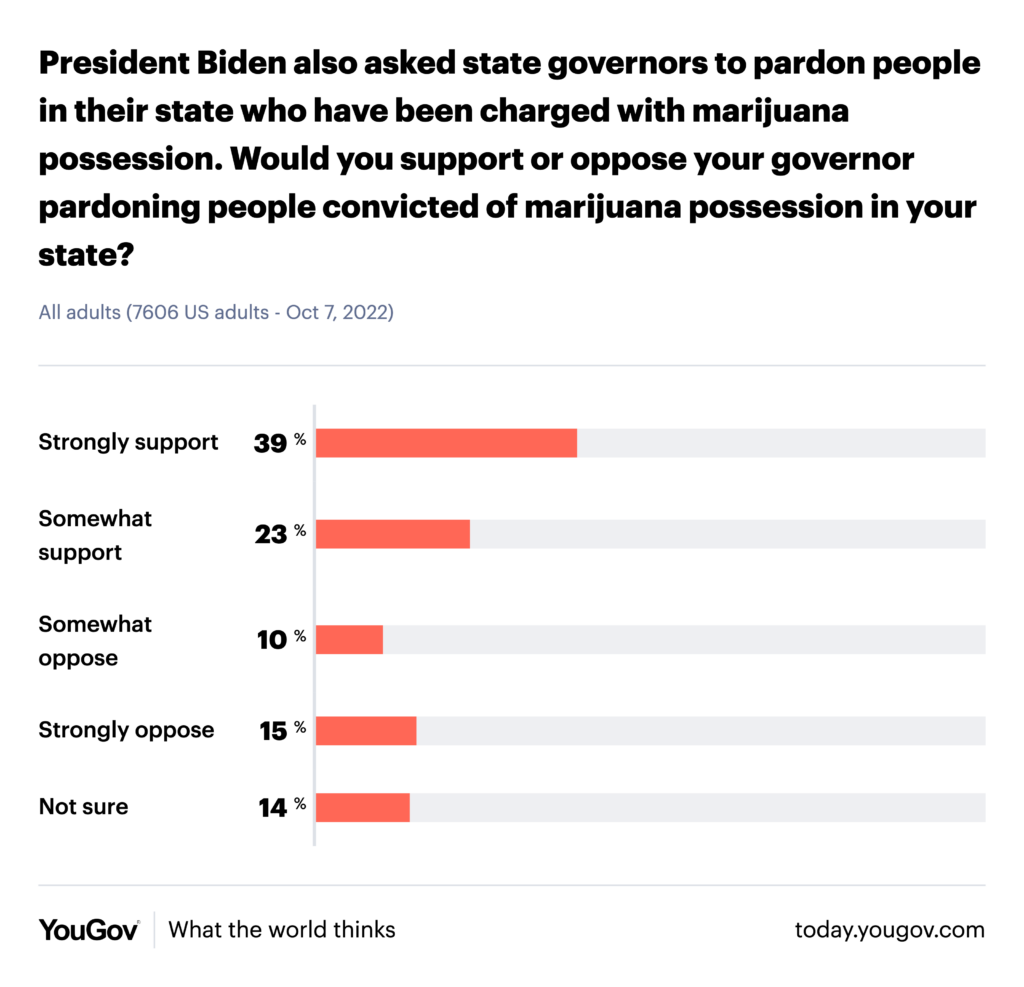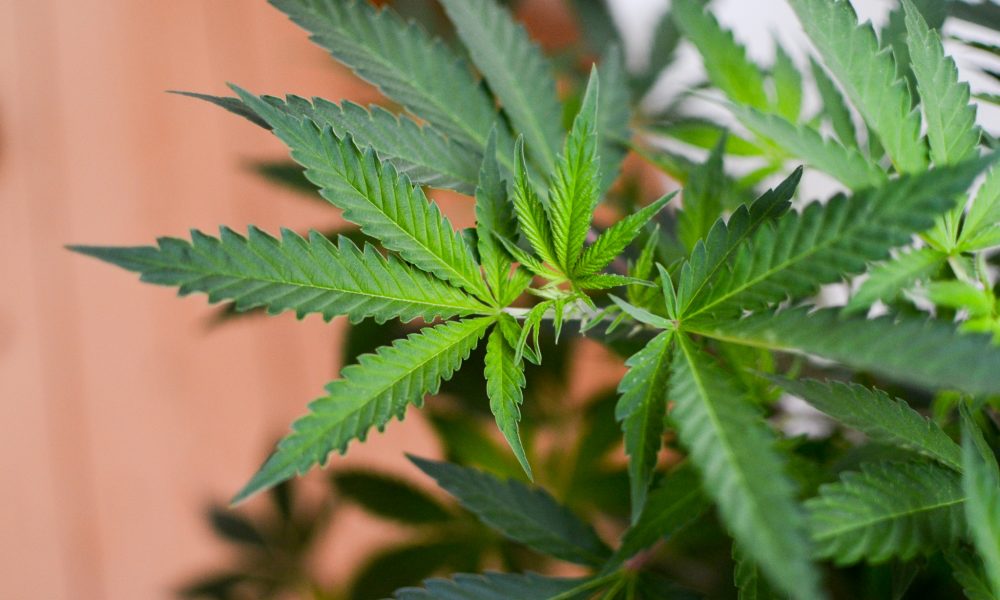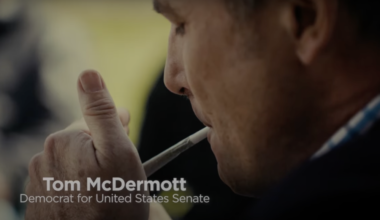A majority of Americans are in favor of President Joe Biden’s decision to grant pardons to people who’ve committed federal marijuana possession offenses, and most also want to see their own governors follow suit with state-level cannabis relief, according to a new poll.
The announcement from Biden came as a welcome surprise to advocates who’ve been pushing the president to take executive action to begin fulfilling his marijuana reform pledges.
In addition to the pardons, Biden also directed federal agencies to quickly review cannabis scheduling—and most Americans in the new survey also said that marijuana should no longer be classified as a Schedule I drug under the Controlled Substances Act (CSA).
The poll from YouGov was released just one day after the president issued the pardon proclamation and called for a scheduling review, which the Justice Department and U.S. Department of Health and Human Services (HHS) said they will expeditiously carry out.
It found that 61 percent of Americans support Biden’s decision, while 26 percent oppose it and 13 percent aren’t sure. There was majority support among Democrats (85 percent), independents (59 percent) and all age demographics. A plurality of Republicans (49 percent) said they opposed the action.
As President Biden calls for a review of marijuana’s scheduling under federal law, half of Americans (51%) – including 57% of Democrats and 41% of Republicans – say marijuana should not be classified as a Schedule I drug.https://t.co/h2idikRI1d pic.twitter.com/Bmxqq8eTX6
— YouGov America (@YouGovAmerica) October 7, 2022
YouGov also asked Americans about another aspect of the president’s announcement: a call to action for governors to similarly pardon people with low-level cannabis convictions at the state level, where the majority of marijuana prosecutions occur.
Sixty-two percent of respondents said that they want to see their governors take complementary action to provide that relief, compared to 25 percent who said they opposed the idea.
Governors and gubernatorial candidates across the U.S. have weighed in on the issue since Biden’s announcement, with some touting actions they’ve already taken, others saying they’ll review the topic and a few dismissing the proposal.
Again, the survey found that a majority of Americans across every age demographic want to see their governors issue marijuana pardons, as do Democrats (84 percent) and independents (62 percent). Just 41 percent of Republicans agreed that top state officials should provide the relief.

Via YouGov.
Finally, the poll asked Americans about marijuana’s status as a Schedule I drug, the strictest classification under the CSA that’s reserved for drugs with no established medical value and a high abuse potential.
Biden said on Thursday that it “makes no sense” that cannabis is in the same schedule as heroin and even more seriously controlled than fentanyl. And according to the survey, a slim majority of respondents (51 percent) agree that marijuana shouldn’t be a Schedule I drug.
Another 25 percent said that cannabis should stay in Schedule I, while 24 percent said they aren’t sure.
The same demographic trends applied, with all age groups saying marijuana shouldn’t be in its current schedule and 57 percent of Democrats and 57 percent of independents saying the same. More Republicans (41 percent) said cannabis doesn’t fit in Schedule I than said it should remain there (38 percent).
The survey involved interviews with 7,606 American adults on October 7.
In general, the polling results and demographic breakdowns roughly align with national surveys on cannabis legalization overall. The issue has steadily grown in support across bipartisan lines as more states have moved to end prohibition.
Three in five U.S. voters think that marijuana should be legalized across the country—and almost half say it should be a “top” or “important” congressional priority—according to one of the most recent polls.
Photo courtesy of Philip Steffan.
Medical Disclaimer:
The information provided in these blog posts is intended for general informational and educational purposes only. It is not a substitute for professional medical advice, diagnosis, or treatment. Always seek the advice of your physician or other qualified healthcare provider with any questions you may have regarding a medical condition. The use of any information provided in these blog posts is solely at your own risk. The authors and the website do not recommend or endorse any specific products, treatments, or procedures mentioned. Reliance on any information in these blog posts is solely at your own discretion.







